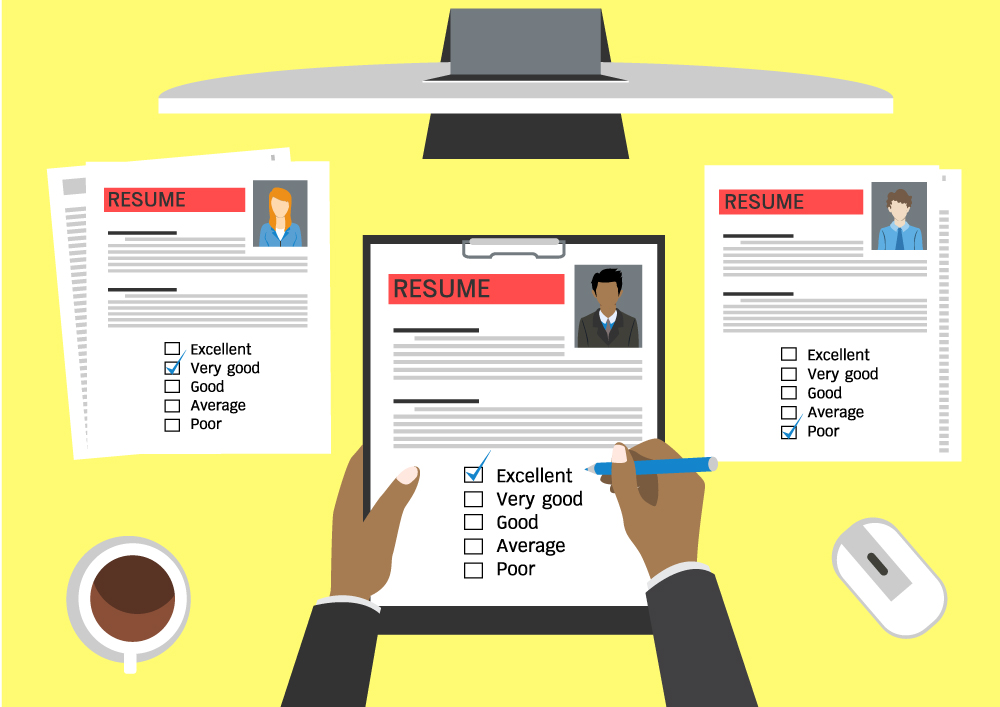
I occasionally hire copy editors, and it’s fascinating to see how people handle the rather limited genres of the résumé and cover letter. Traditional wisdom says that applicants can be divided into roughly three categories: not at all qualified, kinda qualified and well qualified. My focus here is how to get from the second category into the third. You can’t magically add years of experience to your work history, but there are some things that can help convince an employer to give you an interview.
Read the job posting. This is like your teacher handing you the answer key along with the test. It tells you exactly what I’m looking for and what’s important to me, and so it’s a guide for what to include. It might tell you, for example, that a cover letter is required (amazingly, many people fail to supply one).
Make your résumé easy to read. You get about six seconds to convince me to care. To get past that six-second threshold, your résumé has to be organized sensibly. If it’s visually confusing, excessively formatted or organized unconventionally, you’re making me work too hard. If you use an online résumé form of some sort, preview what it will look like. Better yet, upload your résumé as a PDF if possible.
Write a thoughtful cover letter. Don’t be boring. The cover letter is an opportunity for you to give me a nuanced and complete idea of who you are as an editor. It can fill in gaps in your professional story, describe your strengths (maybe by describing a particularly rewarding project you worked on), explain what interests you about the organization, and even show off how well you can write. A great cover letter — and I only get a small handful of these each hiring round — gives me an idea of who you are and what you’re like to work with. Don’t be afraid to let your personality shine through.
Quantify your relevant experience. Lots of jobs with the word editor in the title involve non-editing duties, and some freelancers only take on occasional projects. If you worked someplace for five years but you only did copy editing half the time, please say so. If I have to guess how much direct experience you have, I might get it wrong and not give you the credit you deserve.
List style guides and genres. List what style guides you work with. If you feel you have expert-level knowledge of Chicago, say so. Describe what kinds of materials you’ve worked with. Even if your experience is in a different type of editing than what I’m hiring for (e.g., your background is in business editing and I’m hiring people to work with educational materials), it’s better to give me a full picture.
Bottom line: More information is better. Every time I hire, there’s a bunch of applicants who don’t get interviews because I don’t know enough about them — they’re all in that second category I mentioned earlier. They might be good, but I don’t have a clear idea of their experience or how much of it they have. I suspect some people want to be vague to avoid saying something that would make them seem a bad fit. But the bigger risk is remaining an unknown.
I hope this incomplete list helps. I look forward to hearing your thoughts.
Discover more from L'HEBDOMADAIRE DES RÉVISEURS
Subscribe to get the latest posts sent to your email.
